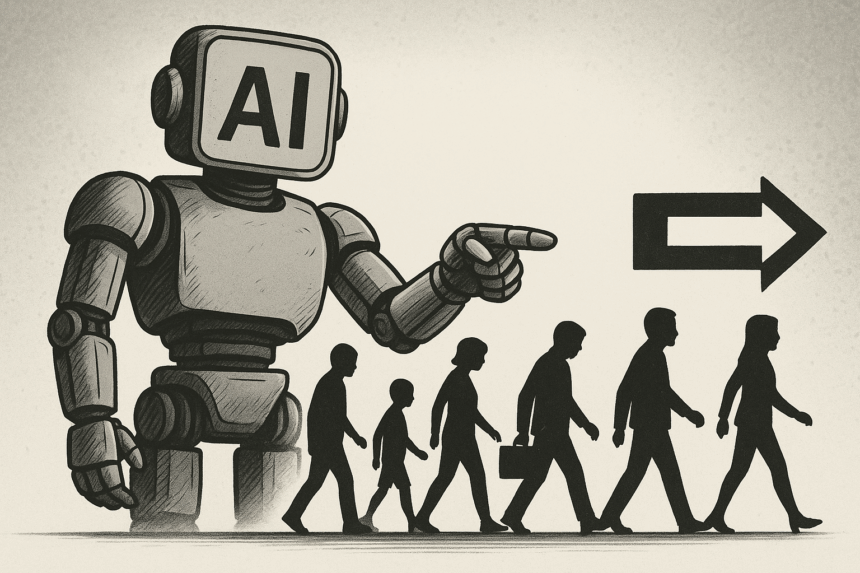Artificial Intelligence (AI) is impacting every sector, industry, and our way of life. It is influencing job markets and changing how billions of users interact with technology daily. From concerns about job automation to achieving user milestones, AI’s influence extends far. TF examines two key developments: the anticipated impact of AI on entry-level jobs and the growth of Meta’s AI tools, which have gained over a billion monthly active users.
What’s Happening & Why This Matters
AI’s Impact on Entry-Level Jobs
Anthropic CEO Dario Amodei warns that AI could automate up to 50% of entry-level jobs in the next five years. He calls out the tech industry for downplaying this reality in public discussions. Amodei explains that AI’s rapid progress — from mimicking a high school student to matching college-level intelligence — makes automation of roles in software engineering, finance, and consulting inevitable. Unemployment could rise to 10-20%, doubling or even tripling current levels.

Amodei stresses the need for transparency and immediate policy action. He says, “We, as the producers of this technology, have a duty and an obligation to be honest about what is coming.” Leaders at OpenAI, Google, and Microsoft are already preparing for these changes behind closed doors. Amodei urges lawmakers to accurately measure AI’s impact and develop regulations to manage this shift.
OpenAI’s CEO, Sam Altman, privately informed Senator Gary Peters that AI might automate up to 70% of jobs. Publicly, Altman admitted, “The long-term changes to our society and economy will be huge. We will find new things to do… but they may not look very much like the jobs of today.”
The job market disruption feels sudden, with business leaders favoring AI agents over human roles to cut costs and improve efficiency. Amodei warns that society is not ready for the scale of this transformation and that preparation is essential.
Meta AI Hits a Billion Monthly Users

Meta’s AI platform, integrated into Facebook, Instagram, Messenger, and WhatsApp, reaches over one billion monthly active users. CEO Mark Zuckerberg shared this milestone during the company’s annual shareholder meeting, emphasizing that AI is deeply embedded across its services. While it’s unclear what constitutes an “active user” in this context, the AI tools are unavoidable for millions worldwide.
OpenAI’s ChatGPT, with about a billion weekly users, remains the world’s largest AI platform. Google’s Gemini AI platform reports 400 million monthly users, integrated across numerous Google applications. Meta’s milestone positions it among the top AI platforms globally, trailing OpenAI but surpassing many competitors.
Zuckerberg expressed ambitions to increase AI adoption, mentioning plans for a premium subscription tier for high-demand AI tasks and exploring paid recommendations within its chatbot. Meta also recently launched a standalone AI app, allowing users to interact with its chatbot independently from other platforms.

TF Summary: What’s Next
AI’s advancements are reimagining the workforce and digital interaction. Policymakers must prioritize measuring the social impact of AI and crafting effective regulations to protect workers and communities. Meanwhile, Meta and other tech giants are integrating AI tools deeply into their everyday apps, expanding access and exploring monetization opportunities.
This dual reality — rising AI-driven unemployment and booming AI user bases — poses challenges and opportunities that businesses, governments, and society must address urgently.
— Text-to-Speech (TTS) provided by gspeech.


